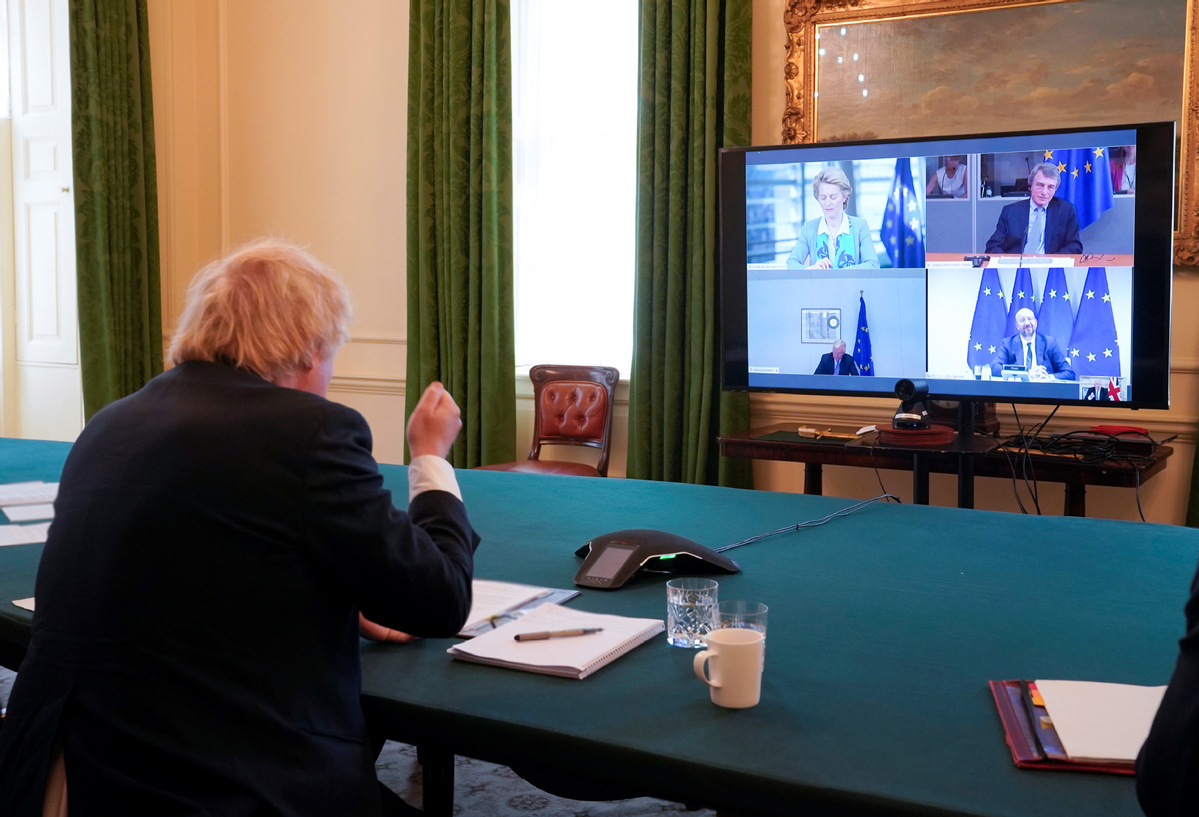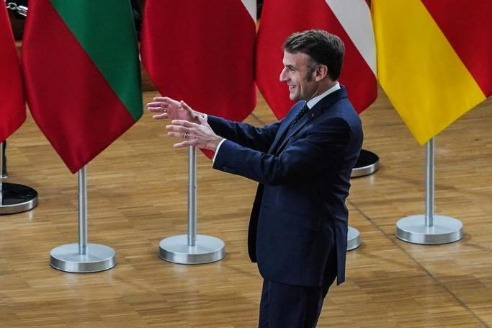Johnson and EU chief bid to break deadlock


Research shows most Britons support Brexit transition period extension
British Prime Minister Boris Johnson held talks with European Commission President Ursula von der Leyen on Monday to review progress of negotiations on Britain's post-Brexit relationship with the European Union.
The talks were held as research revealed that the majority of Britons want an extension to the transition period because of the COVID-19 pandemic.
In a "high level" video conference call with von der Leyen the two sides held an "intensified" round of trade discussions in a bid to make progress on key areas of disagreement.
A government official told the Financial Times: "The high-level meeting was always envisaged as a moment to push the negotiations forward.
"We now need to get this resolved and deliver certainty for businesses at home and in the EU as soon as possible."
Britain on Friday ruled out extending its current transition period with the EU, which sees continued tariff-free access to the single market until the end of 2020.
However, more than half of nearly 2,000 British people surveyed by pollster Ipsos MORI for the Health Foundation charity said the United Kingdom should request an extension to the transition period in order for the government to focus on the COVID-19 pandemic.
Support for the extension rose to 65 percent when people were informed that there could be potential delays to the supply of medicines in the event of a no-deal Brexit.
Over three-quarters of people surveyed believe the UK should work "very closely" with the EU to combat COVID-19, with a further 17 percent agreeing it should work "fairly closely" with the bloc.
COVID-19 has put the government, the economy, the National Health Service and social care under intense pressure, and there is concern that a no-deal Brexit could exacerbate acute shortages of medicine and vital supplies during the winter flu season.
Jennifer Dixon, chief executive of the Health Foundation, said: "The public understandably prefer protection from risks that can be anticipated and avoided. This research suggests the public clearly prioritize the management of the (novel) coronavirus pandemic, and collaboration with the EU."
The UK formally exited the EU on Jan 31 and entered into a transition period, which is scheduled to expire on Dec 31, 2020.
Britain had until the end of June to notify the EU whether it wished to extend the transition period but Cabinet Minister Michael Gove said on Friday that he had already "formally confirmed" the UK will not do so.
"On Jan 1, 2021 we will take back control and regain our political and economic independence," he added on Twitter.
Monday's talks preclude further videoconferences scheduled for June 29.
































